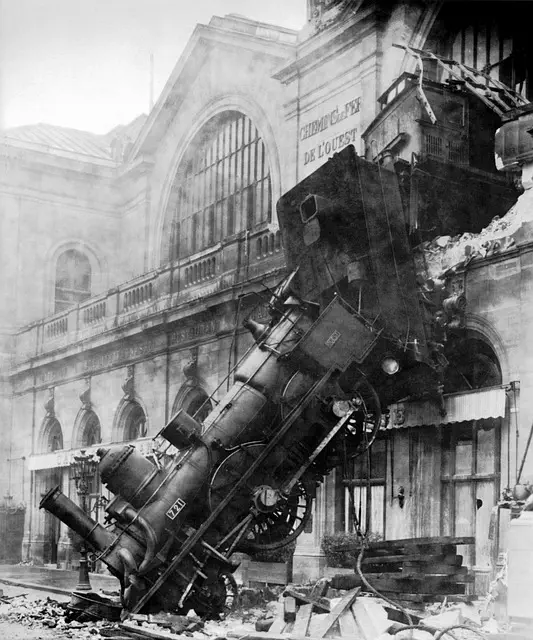In Queens and The Bronx, New York, understanding trucking liability is crucial for workplace safety due to the region's dense traffic and prevalence of commercial vehicles. Stricter regulations in The Bronx focus on driver training, vehicle maintenance, and traffic rule adherence. Legal experts balance accountability with protecting the industry from baseless claims, emphasizing fair litigation and enhanced safety. Best practices include regular safety training, open reporting, audits, protective gear, and continuous education to minimize trucking liability and create a safer work environment for drivers and employees alike.
In the dynamic world of transportation, ensuring workplace safety is paramount, especially within The Bronx’s bustling trucking industry. This article delves into crucial aspects of trucking liability in Queens from a legal standpoint, emphasizing the vital role of comprehensive workplace safety training for trucker employees. We explore common hazards and effective prevention strategies while shedding light on the legal implications and best practices for employers navigating The Bronx’s regulatory landscape. Understanding these elements is key to fostering a safer, more compliant trucking environment.
- Understanding Trucking Liability in Queens: A Legal Perspective
- The Importance of Workplace Safety Training for Trucker Employees
- Common Hazards and Prevention Strategies in the Trucking Industry
- Legal Implications and Best Practices for Employers in The Bronx
Understanding Trucking Liability in Queens: A Legal Perspective

In the bustling landscape of Queens, New York, understanding trucking liability is crucial for ensuring workplace safety, especially with the frequent presence of commercial vehicles and truck drivers. From a legal perspective, The Bronx has long been a focal point for navigating complex transportation laws, which significantly impact worker safety. Trucking companies and their operators face stringent regulations aimed at mitigating risks associated with large vehicles. These include strict maintenance standards, driver training requirements, and adherence to traffic rules, all designed to minimize accidents and injuries.
The legal framework surrounding trucking liability in The Bronx involves a delicate balance between holding carriers accountable for their operations and protecting the industry from unfounded claims. This is where the expertise of lawyers specializing in workplace safety becomes invaluable. They help interpret laws, investigate incidents, and advocate for policies that enhance driver and worker safety while ensuring fairness in litigation.
The Importance of Workplace Safety Training for Trucker Employees

In the dynamic and often demanding world of trucking, ensuring workplace safety is paramount. Trucker employees face unique risks on the road and at various stops along their routes. Comprehensive training plays a pivotal role in mitigating these risks and fostering a culture of safety. By implementing rigorous safety protocols and regular training sessions, companies can significantly reduce accidents, injuries, and potential liability issues related to trucking operations in areas like The Bronx.
Workplace safety training equips drivers with the knowledge and skills to navigate hazardous situations effectively. This includes learning about vehicle maintenance procedures, safe driving practices, and emergency response strategies. Moreover, understanding the legal aspects of trucking liability is crucial; proper training can help employees comprehend their rights and responsibilities, ensuring they operate within regulatory frameworks and minimizing exposure to financial risks associated with accidents or damage to property.
Common Hazards and Prevention Strategies in the Trucking Industry

In the dynamic and often high-pressure world of trucking, ensuring workplace safety is paramount to prevent accidents and mitigate liability. Common hazards in this industry include fatigue due to extended driving hours, which can lead to driver distraction and slower reaction times. To counter this, strict adherence to hour-of-service regulations and promoting driver rest is crucial. Another significant risk is vehicle maintenance issues, as faulty brakes or worn-out tires can have catastrophic consequences. Regular, thorough vehicle inspections by qualified technicians are essential in identifying and rectifying potential safety hazards before they cause accidents.
Prevention strategies also encompass safe loading practices to avoid cargo shift during transport, reducing the risk of rollovers. Securely fastening cargo using appropriate securing methods and following weight limits is non-negotiable. Moreover, navigating through The Bronx’s urban environment requires heightened awareness due to heavy traffic and narrow roads. Truckers must be adept at defensive driving techniques, constantly scanning for potential risks, and adhering to local regulations to minimize liability in case of accidents.
Legal Implications and Best Practices for Employers in The Bronx

In The Bronx, as across New York State, employers have a legal obligation to provide a safe workplace. Failure to do so can lead to significant legal implications, including personal injury lawsuits and hefty damages. Trucking companies operating in this area must be particularly vigilant due to the inherent risks associated with commercial vehicles. A comprehensive understanding of trucking liability is essential for employers to manage risk effectively. Regular safety training tailored to the unique challenges of the industry is a best practice that can mitigate potential legal issues stemming from accidents or injuries on the job.
Employers should also foster an open and transparent culture where employees feel comfortable reporting safety concerns without fear of retaliation. Conducting frequent safety audits, providing access to protective equipment, and offering ongoing education on safety protocols are additional strategies that demonstrate a commitment to compliance. These proactive measures not only protect employers from trucking liability but also contribute to a positive work environment and improved job satisfaction among employees.
In conclusion, comprehensive workplace safety training is paramount in the trucking industry to mitigate risks and prevent accidents. Understanding the legal implications of trucking liability in Queens, specifically The Bronx, is crucial for employers to implement best practices and ensure compliance. By recognizing common hazards and adopting preventive strategies, companies can foster a safer work environment for trucker employees, ultimately reducing potential legal repercussions associated with negligence.
